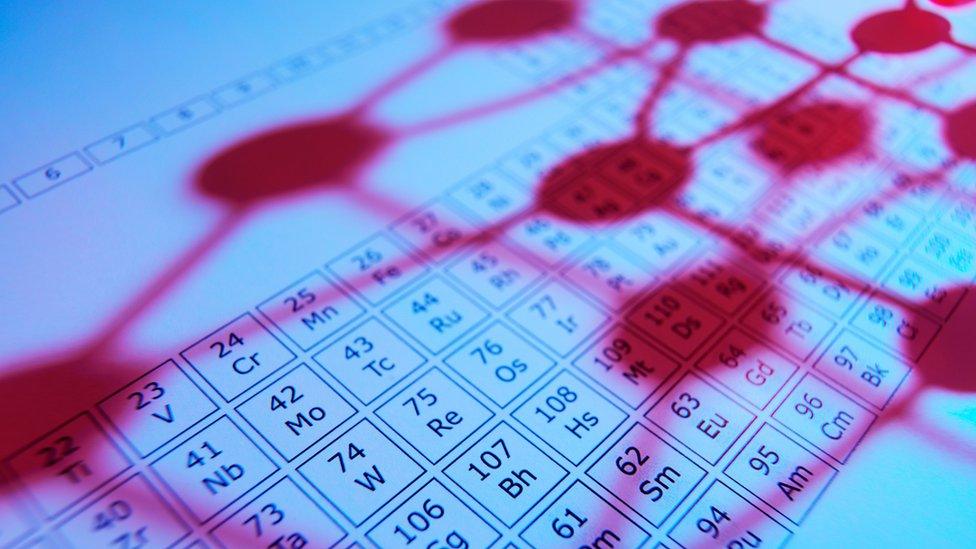Who, What, Why: How do elements get their names?
- Published

New elements have been added to the periodic table. But how do they get their names, asks Camila Ruz.
Science textbooks around the world have become suddenly out of date. Four new chemical elements have been added to the periodic table. A big decision now lies ahead - elements 113, 115, 117 and 118 need to be given their official names and symbols.
New elements can be named after a mythological concept, a mineral, a place or country, a property or a scientist. The names have to be unique and maintain "historical and chemical consistency", external. This means a lot of "-iums".
"They're Latinising the name," explains chemist Andrea Sella of University College London. "The most recent tradition has been to name them after places or after people." The places chosen tend to be where the element was discovered or first manufactured. The Swedish village of Ytterby has managed to get four named after it (ytterbium, yttrium, erbium and terbium).
No-one has yet named an element after themselves but many elements are named in tribute to important scientists. Albert Einstein was given einsteinium. This can also be a way of righting the wrongs of the past. "Lise Meitner was really the chemist who spotted nuclear fission but she was never really recognised for it because she was Jewish and a woman," says Sella. "To be able to give an element a name that reminds us of her is I think greatly important."
The naming process isn't quick. The scientists who discovered them will start things off by proposing a name. But it will be down to the International Union of Pure and Applied Chemistry (IUPAC) to approve it. A special division of the US-based group has to accept the proposal. There is then a public review period of five months before the IUPAC council gets the final approval. Once it's ready, the name is announced in the scientific journal Pure and Applied Chemistry, external.
Scientists sometimes get creative. Mythical names have proved popular. Promethium was named after a character from a Greek legend who stole fire from the gods to give to humans and was punished by being chained to rock so an eagle could feed on his liver. The name was meant to reflect the fact that synthesising new elements often requires sacrifice.
There is hidden meaning in the table - as in the naming of praseodymium and neodymium. They replaced didymium - wrongly thought to be an element but in fact a mixture of the two. "The reason I like them is because they're called the green twin and the new twin," says Sella. "Didymium was named after [the Greek for] twin but in fact it also means testicles."
Naming an element is not just about functionality. "There's a tremendous romance to this," he adds. "Names are always important."
Subscribe to the BBC News Magazine's email newsletter to get articles sent to your inbox.